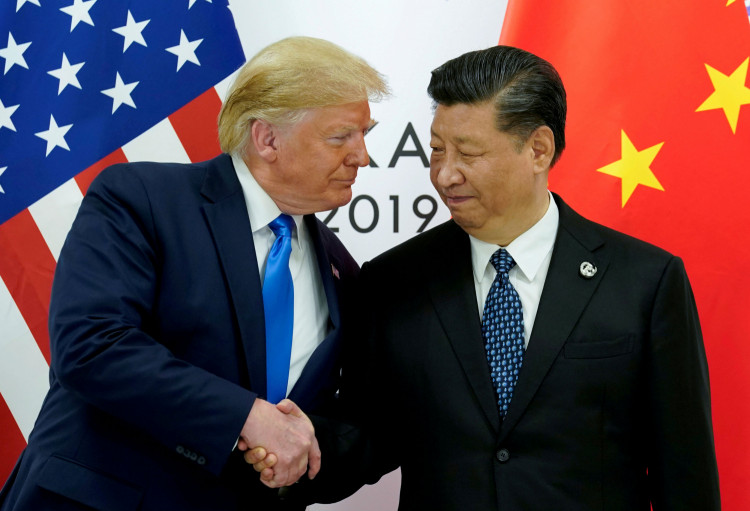President Donald Trump said Tuesday that tariffs on Chinese goods will "come down substantially, but it won't be zero," signaling a potential shift in the administration's trade stance as pressure mounts from investors and allies. Speaking during a White House news conference, Trump confirmed that the current 145% tariff rate imposed on Chinese imports would be lowered, though he did not offer a specific timeline or final target rate.
"145% is very high and it won't be that high," Trump told reporters. "It won't be anywhere near that high. It'll come down substantially. But it won't be zero." His remarks came hours after Treasury Secretary Scott Bessent privately told investors that the trade war with China is unsustainable and that he expects a "de-escalation" in the near future. "Neither side thinks the status quo is sustainable," Bessent said, according to a transcript of his remarks confirmed by two sources familiar with the event.
The S&P 500 rose 2.5% following the news, while Asian markets rallied overnight. Hong Kong's Hang Seng Index jumped more than 2%, Japan's Nikkei 225 rose by nearly 2%, and South Korea's Kospi gained 1.5%, reflecting optimism that tensions between the world's two largest economies may ease.
While Trump appeared to soften his position, he also attempted to maintain a posture of strength. "We're going to live together very happily and ideally work together," he said, adding, "Ultimately, they have to make a deal, because otherwise they're not going to be able to deal in the United States."
Trump said he would "be very nice" to Chinese President Xi Jinping and denied any plans to play hardball. "No, no, we're going to be very nice. They're going to be very nice, and we'll see what happens," he said. "We're doing fine with China."
China has not formally responded, but Beijing's foreign ministry warned Wednesday that the U.S. must "stop its threats and coercion, and engage with China on the basis of equality, mutual respect and reciprocity." Guo Jiakun, a spokesperson, said at a press briefing, "Claiming it wants to reach an agreement with China while constantly applying maximum pressure is not the right way to engage with China - and it simply won't work."
"China's position on the tariff war initiated by the United States is very clear: We do not want to fight, but we are not afraid to fight. If it's to fight, we'll fight till the end. If it's to talk, our door is wide open," Guo added.
Chinese social media erupted in response to Trump's remarks. On Weibo, the hashtag "Trump chickened out" surged to over 150 million views. State-run China Daily labeled the tariffs "emblematic of the MAGA agenda's populist protectionism," while Korean outlets reported Chinese warnings to third-country firms, including South Korean exporters, about providing U.S. military contractors with products containing Chinese minerals.
The broader tariff regime, announced as part of Trump's "Liberation Day" rollout on April 2, remains intact for most trading partners, with only a 90-day pause in place. The White House has received 18 proposals from other countries seeking trade deals, according to press secretary Karoline Leavitt. "Everyone involved wants to see a trade deal happen," she said.
Amid the uncertainty, Trump has continued to pressure the Federal Reserve to cut rates, at one point stating he could fire Chair Jerome Powell. Though he later walked that back, he added: "I want him to be early," referring to lowering interest rates.
Trump has so far shown no willingness to reduce the 10% baseline tariff on other countries, though negotiations are underway with Japan, South Korea, Canada, the EU, and others. China, meanwhile, has retaliated with 125% tariffs, restricted exports of critical minerals, and placed new limitations on American firms, including Hollywood studios and aerospace companies.






